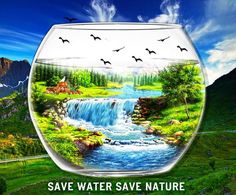From Ancient Civilizations to Modern Cities: Unraveling the Story of Water
we delve deep into the riveting history of water from ancient civilizations to modern cities. Water has been one of the most significant resources for human survival since the dawn of time. Yet, the story of water remains largely untold, despite its immense importance. Therefore, we aim to take you on a journey to uncover the fascinating history of water. From the wells and aqueducts of ancient civilizations to the complex water management systems of modern cities, we will explore how water has shaped our past and present. Join us as we unveil the story of water and promise a profound understanding of its value. Intrigued to know more about our most precious resource? Keep reading!
Water in Ancient Civilizations
Water has been a critical component of human civilization since ancient times. From the Nile to the Indus, many early civilizations were built around accessible water sources. Ancient societies, such as Egyptians, Greeks, and Romans have left behind evidence of their advanced water technologies for irrigation, sanitation and construction.The Egyptians are particularly renowned for their advanced water management systems. They constructed canals and dikes to divert water from the Nile river into vast irrigation networks that allowed them to grow crops in an otherwise inhospitable environment. Additionally, they also built elaborate systems of reservoirs and cisterns for storing rainwater during the annual flood season.
Despite their ingenuity in managing their water resources, many ancient societies eventually collapsed due to environmental degradation caused by unsustainable agricultural practices or climate change events like droughts. However, the legacy of these societies still lives on today in modern water management practices that have evolved over time.
Global Efforts towards Water Sustainability
In the face of growing concerns about unsustainable water use, countries across the world are making concerted efforts towards water sustainability. These global initiatives come in varied forms, from international agreements to local programs. One notable example is the United Nations' Sustainable Development Goal 6, which aims to ensure universal access to clean water and sanitation by 2030. This goal has spurred many countries into action, resulting in innovative approaches to managing water resources sustainably.
Another noteworthy initiative is the Water Action Decade launched by UNESCO in 2018, which seeks to accelerate solutions for global water challenges through collaboration and knowledge sharing. Such efforts have already shown promising results, with many countries significantly reducing their water consumption and improving overall efficiency. As we move forward, it is essential that these global efforts continue and expand for a more sustainable future.
Water in Modern Cities
Water in Modern Cities: The modern city is an ecosystem that depends heavily on water. Urban areas use water for domestic, industrial, and agricultural purposes, among others. The influx of people to cities has resulted in the increased demand for clean and safe water sources, putting pressure on existing resources. However, innovations such as wastewater treatment plants and desalination facilities have helped cities meet this demand.
In addition to providing basic needs such as drinking water and sanitation services, modern cities have also found creative ways to leverage water resources. For instance, urban planners are now implementing green infrastructure such as rain gardens and green roofs that help capture rainwater for irrigation purposes while reducing stormwater runoff. These initiatives not only help conserve water but also contribute to a healthier environment by reducing pollution levels.
Despite these efforts, there is still work to be done in ensuring sustainable management of available water resources in urban areas. However, through continued innovation and collaboration between stakeholders at all levels, the goal of achieving sustainable access to clean water for all can be realized.
Introduction
Water is a precious resource that has shaped the development of human civilization for centuries. From ancient times to modern cities, water has been a vital element in our lives, providing sustenance and shaping our societies. However, water scarcity and pollution have become major global concerns that threaten the very survival of humanity.</p><p>In this article, we will delve into the fascinating story of water and its role in shaping human civilizations from ancient times to modern cities. We will explore how different cultures around the world have harnessed this precious resource and how they have adapted to changing environmental conditions over time. Additionally, we will examine the global efforts towards water sustainability and how modern cities are tackling the challenges of providing safe drinking water to their citizens in an era of rapid urbanization
Conclusion
Water, as we have seen, has played a crucial role in the development of human civilization. From ancient civilizations to modern cities, water has been essential for agriculture, transportation, and domestic use. However, with increasing population and the negative impact of human activities on the environment, our water resources are depleting rapidly. The good news is that global efforts towards water sustainability have increased in recent years. With proper management practices and collaborative efforts among governments and private organizations, we can ensure that future generations will also have access to clean and safe water. Let us all work together to protect this precious resource for a brighter future.



.jpg)
Comments
Post a Comment